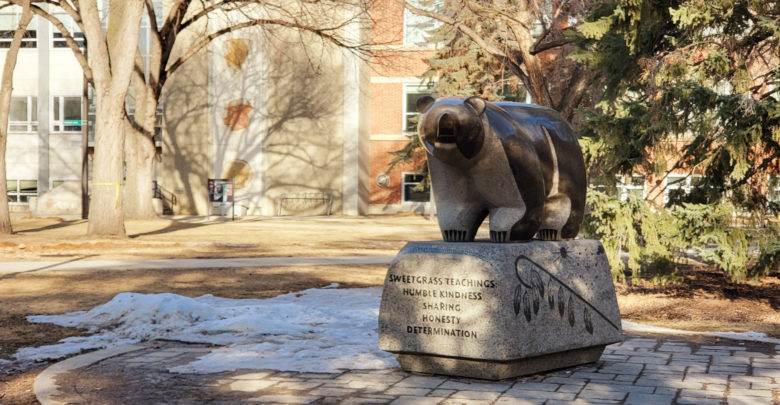Faculty of Native studies’ online courses aim to educate public on the histories of Indigenous peoples
These courses "showcase the role that post-secondary institutions can play in truth and reconciliation," acting dean of the faculty of Native studies says.
 Arthur Macatangay
Arthur MacatangayThe University of Alberta’s faculty of Native studies offers five self-directed continuing education micro-courses, open to the public online. These courses aim to educate individuals about the histories of Indigenous peoples in Canada, and the issues they continue to face today.
Nathalie Kermoal, acting dean of the faculty of Native studies, said that these courses were made so that the information can reach individuals that are “seeking opportunities to learn more about the histories of Indigenous peoples in Canada,” whether they are students at the U of A or not.
“By having these courses online, it allows us to showcase the role that post-secondary institutions can play in truth and reconciliation — by expanding educational opportunities to the general public,” Kermoal said.
On April 1, the Countering Stereotypes of Indigenous Peoples micro-credential series launched, featuring three separate courses that each take around 20 hours to complete. The courses will explore prevalent stereotypes of Indigenous peoples.
“It’s looking at the most relevant stereotypes of Indigenous peoples, and trying to deconstruct some of these stereotypes,” Kermoal said.
The first course in this series, Foundations of Stereotypes: Systems Thinking, explores the foundations of anti-Indigenous stereotypes in North America, by using introductory psychology and critical Indigenous Studies.
Representations: Application and Collaboration is the second course in the series. It builds off of the first course, and explores both historical and contemporary representations of Indigenous peoples.
The third course in this series is Systems: Leadership and Institutional Change and it “takes a closer look at the relationship between anti-Indigenous stereotypes and socio-political-economic systems in North America,” according to the course description.
Kermoal said that these courses include different assessments and activities which focus on self-reflection, creating “a possibility for organizations or industries to provide professional development.”
A separate online micro-course Indigenous Peoples and Canada, is a condensed version of the Massive Open Online Course (MOOC), Indigenous Canada. The micro-course is based on six modules, and although it’s shorter than the 12 week MOOC, it “gives a good grounding for people,” Kermoal said.
“It looks at historical and contemporary experiences of Indigenous peoples, and overall it helps to understand the legacy of settler colonialism, and what we mean when we talk about Indigenous self-determination.”
Tackling Structural Racism is another online micro-course offered by the faculty of Native studies. The course takes eight to 10 hours to complete, and explores structural racism in Canada.
“Tackling Structural Racism relates to present ways of recognizing and tackling issues related to structural racism in Canada. Even though we hear about structural racism, often people don’t know exactly what that means,” Kermoal said.
“These micro-credential courses are Indigenous-led, with Indigenous perspectives and experiences, and both of them grounded in the Truth and Reconciliation Commission’s Calls to Action.”



